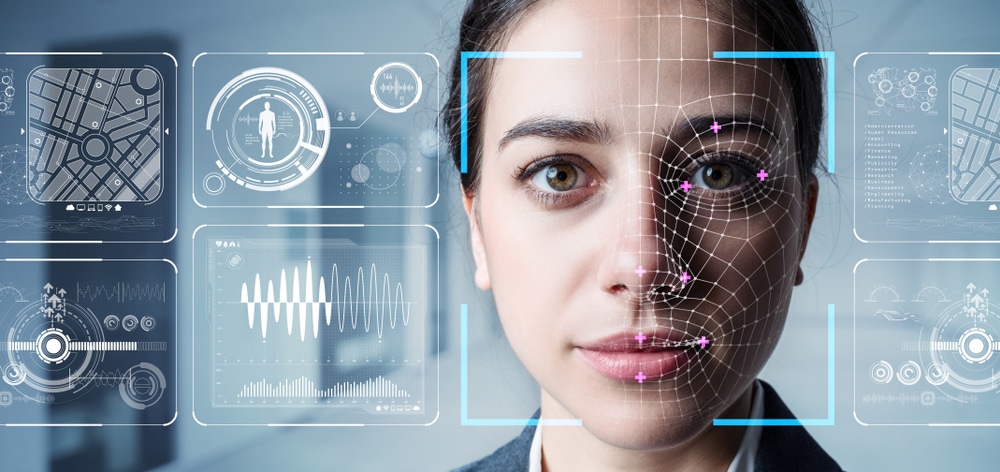The number of cyber-attacks is increasing, both globally and in Sweden, and the economic consequences are significant. DDos attacks, ransomware attacks, data breaches and doxing are just a few examples of cyber attacks that several companies in Sweden have been exposed to in recent years. For example, Kalix municipality was exposed to a ransomware attack in December 2021 that knocked out their entire IT system and cost the municipality about SEK 2.5 million. Another example is the Swedish Transport Agency’s internet service provider, which was subjected to a DDos attack in 2017, causing train delays throughout the country.
Investing in cyber security is crucial to protect your business against various cyber threats and attacks. The human factor is currently the weakest link when it comes to IT security. That’s why background checks when hiring are a key factor to a secure company. With background checks, you can ensure that you hire staff who have the integrity required for the role.

What is cybersecurity?
Cybersecurity covers a range of strategies and measures to protect an organisation’s data, networks and systems from digital threats and attacks. This includes implementing technical solutions such as firewalls, antivirus software and encryption, as well as training employees in security practices to prevent data breaches and loss of sensitive information.
Having an effective strategy for your company’s cybersecurity reduces the risk of cyberattacks, protects your company’s reputation, ensures compliance with data protection laws and regulations, and contributes to a safe digital work environment.
What should your organisation consider regarding cybersecurity?
When it comes to cybersecurity and risk management, there are some key things to consider to create a safer IT environment:
- Background checks on employees and suppliers: Having staff and suppliers you can trust is crucial to ensure your company’s IT security. With background checks, you know who you are hiring and engaging in your organisation.
- Training and awareness: Employees are often the weakest link in the cybersecurity chain. It is important to regularly train your staff on the latest cyber threats and how to avoid them.
- Access control and authorization management: Make sure to restrict access to sensitive information. Use the principle of least privilege, which means giving employees only the levels of access necessary to perform their duties.
- Strong passwords and authentication methods: Encourage the use of strong passwords and implement multi-factor authentication when possible.
- Regular updates: Ensure that all systems and software are updated to be protected against known vulnerabilities.
- Data protection and encryption: Use encryption to protect sensitive data, both at rest and in transit.
- Incident management: Have a plan for managing and responding to security incidents. This should include steps to limit the damage and restore systems.
- Regular security reviews and testing: Conduct regular security reviews and penetration tests to identify and fix vulnerabilities.
Strengthen your organisation’s cybersecurity strategy. Start with background checks of (potential) employees today.

Common cybersecurity risks and what measures you can take
The risks within cybersecurity are many. As digitalisation increases, there are more cyber threats that your company needs to be prepared for:
- Malware: This term covers different types of malicious software such as viruses, Trojans and ransomware. Malware can damage, disrupt or gain unauthorised access to computer systems.
- Phishing: This involves attempts to trick recipients (via email, social media, SMS) into revealing confidential information, such as passwords and credit card details, by impersonating a legitimate organisation or individual.
- Denial-of-Service (DoS) and Distributed Denial-of-Service (DDoS): These attacks aim to overwhelm a website or network service with traffic from one or more sources, making them inaccessible to legitimate users.
- SQL Injection: The attacker injects malicious SQL code into a database via a vulnerable application to manipulate or steal information.
- Insider threats: Threats from individuals within the organisation, such as employees, suppliers or business partners, who either intentionally or unintentionally damage the company’s network or data. You can minimise the risk of insider threats by conducting background checks.
Managing these risks requires a comprehensive cybersecurity strategy that includes technical measures, employee awareness and training, and continuous monitoring and adaptation to the ever-changing digital landscape. All these threats are constantly evolving and new variants emerge. Therefore, it is important to continuously update and adapt your organisation’s cybersecurity strategies to ensure effective protection.
How are cybersecurity and employee background checks related?
Cybersecurity starts with your staff, so it is important to know who you are hiring. Humans are one of the biggest security risks, involving everything from insider threats to unfortunate missteps. Simple mistakes, like clicking on a malicious link, can lead to major security breaches. If you happen to hire someone with malicious intent the consequences can be devastating. Someone who deliberately wants to harm your company by stealing data can seriously damage your company’s reputation and the financial consequences can be enormous. By conducting background checks both before hiring and during employment, you can ensure that you have honest and trustworthy employees.
How to prevent the risks with background checks in employment
Background checks are an important part of your company’s risk management. With Validata’s different types of background checks, you can find out if a potential employee is suitable for a certain position and if there are any risks associated with hiring the person.
Some checks that should always be included in a background check are the following:
- Identity check – An identity check ensures that the person is who they claim to be.
- Criminal record check – A criminal record check ensures that the person has not been involved in any criminal activities in the past.
- Credit check – A credit check provides information on the person’s creditworthiness and gives insight into possible financial risks.
- Education check – An education and degree check ensures that the person has the education they claim to have and is qualified for the job.
Contact us for a customised solution with background checks tailored for your organisation’s needs.

EU increases cybersecurity requirements by 2024 – is your organisation ready?
The EU is now increasing cybersecurity requirements with the NIS2 Directive. This is a comprehensive update to the EU’s original Network and Information Systems Directive, which aims to strengthen cybersecurity within the Union. The update expands the scope of which organisations are covered, including key public and private sectors such as energy, transport, healthcare, and digital infrastructure. NIS2 introduces stricter security requirements, increases accountability through enhanced reporting obligations for cyber incidents and strengthens coordination between Member States to effectively address cross-border cybersecurity risks. This is essential to protect critical infrastructure and essential services against the growing number and severity of cyber threats and attacks, but it also comes with higher security requirements for your organisation. Are you prepared?
Contact us for more information on how we can help your organisation adapt to comply with the NIS2 Directive.
Send us your request
Contact us
Contact us
"*" indicates required fields
Contact us
"*" indicates required fields
Download the white paper
Download the white paper
Download the white paper
Contact us
"*" indicates required fields
Thanks for registering!
"*" indicates required fields




